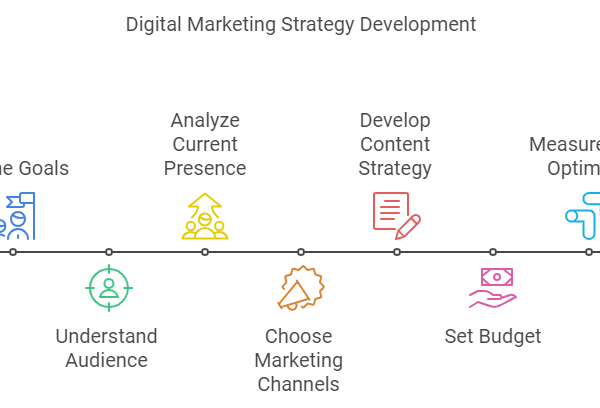
In today’s data-driven world, proficiency in Excel spreadsheets is a valuable skill sought after by employers across various industries. While many individuals are familiar with the basics of Excel, advanced techniques can significantly enhance your ability to analyze data, streamline processes, and make informed decisions. In this article, we will delve into the advanced techniques taught in Excel spreadsheet training programs, empowering you to take your Excel skills to the next level.
Importance of Excel Spreadsheet Training
Excel spreadsheet training equips individuals with the knowledge and skills necessary to leverage Excel’s full potential. Whether you’re a business professional, analyst, or student, mastering advanced Excel techniques can help you work more efficiently, uncover insights hidden within your data, and present your findings effectively.
PivotTables and Pivot Charts
One of the most powerful features of Excel is PivotTables. In Excel spreadsheet training, you’ll learn how to create PivotTables to summarize, analyze, and visualize large datasets quickly. PivotTables allow you to rearrange and manipulate data dynamically, enabling you to gain valuable insights with just a few clicks. Additionally, you’ll learn how to create Pivot Charts, which provide visual representations of your PivotTable data, making it easier to identify trends and patterns.
Advanced Formulas and Functions
Excel offers a vast array of formulas and functions that can perform complex calculations and automate repetitive tasks. In Excel spreadsheet training, you’ll learn advanced formulas such as INDEX-MATCH, SUMIFS, COUNTIFS, and VLOOKUP, which allow you to manipulate data and perform sophisticated analyses with ease. Mastering these formulas can save you time and effort while providing more accurate and reliable results.
Data Analysis Tools
Excel provides several built-in data analysis tools that can help you gain deeper insights into your data. In Excel spreadsheet training, you’ll learn how to use tools such as Goal Seek, Scenario Manager, and Solver to perform what-if analysis, optimize solutions, and make data-driven decisions. These tools are particularly valuable for business professionals, financial analysts, and project managers seeking to maximize efficiency and minimize risk.
Macros and Automation
For repetitive tasks that involve multiple steps, macros can be a game-changer. In Excel spreadsheet training, you’ll learn how to record and edit macros to automate tasks, such as data entry, formatting, and reporting. By automating these tasks, you can save time, reduce errors, and focus on more value-added activities. Additionally, you’ll learn how to create custom functions using Visual Basic for Applications (VBA), further extending Excel’s capabilities.
Data Visualization Techniques
Effective data visualization is essential for conveying insights and trends to stakeholders clearly. In Excel spreadsheet training, you’ll learn advanced data visualization techniques, such as conditional formatting, sparklines, and advanced chart types. These techniques allow you to create visually appealing and interactive charts and graphs that highlight key findings and make complex data more accessible and understandable.
Collaboration and Sharing
In today’s collaborative work environment, Excel’s collaboration features are invaluable. In Excel spreadsheet training, you’ll learn how to share workbooks, track changes, and collaborate with colleagues in real-time using Excel Online and SharePoint. These features enable seamless collaboration, allowing multiple users to work on the same document simultaneously and ensuring that everyone is working with the latest version of the data.
Conclusion
Excel spreadsheet training provides individuals with the knowledge and skills needed to harness the full power of Excel for data analysis, reporting, and decision-making. By mastering advanced techniques such as PivotTables, advanced formulas, data analysis tools, macros, data visualization, and collaboration features, you can become more efficient, effective, and confident in your ability to work with data in Excel. Whether you’re a beginner looking to expand your skills or an experienced user seeking to take your Excel proficiency to the next level, Excel spreadsheet training offers valuable insights and techniques that can benefit you in your personal and professional endeavors.
FAQs
How can Excel spreadsheet training benefit my career?
Excel spreadsheet training can benefit your career in several ways. It equips you with valuable skills that are highly sought after by employers, such as data analysis, reporting, and decision-making. Proficiency in Excel can enhance your productivity, efficiency, and accuracy in various roles and industries, opening up opportunities for career advancement and growth.
Do I need prior experience with Excel to enroll in a spreadsheet training program?
While prior experience with Excel is helpful, it is not always necessary to enroll in a spreadsheet training program. Many programs cater to individuals of all skill levels, from beginners to advanced users, and offer instruction tailored to your specific needs and goals. Whether you’re just starting or looking to expand your skills, there’s a training program available to suit your level of experience.
What topics are typically covered in Excel spreadsheet training programs?
Excel spreadsheet training programs cover a wide range of topics, including basic to advanced Excel functions and formulas, data analysis techniques, data visualization, PivotTables, macros and automation, collaboration and sharing features, and best practices for efficient and effective spreadsheet usage. The curriculum may vary depending on the program’s focus and duration, but most programs aim to provide comprehensive instruction on Excel’s key features and capabilities.











